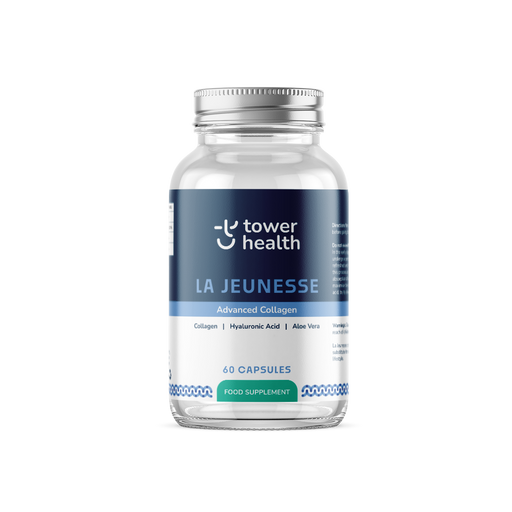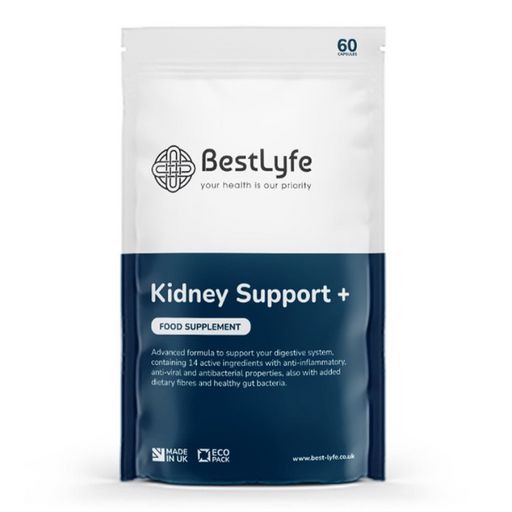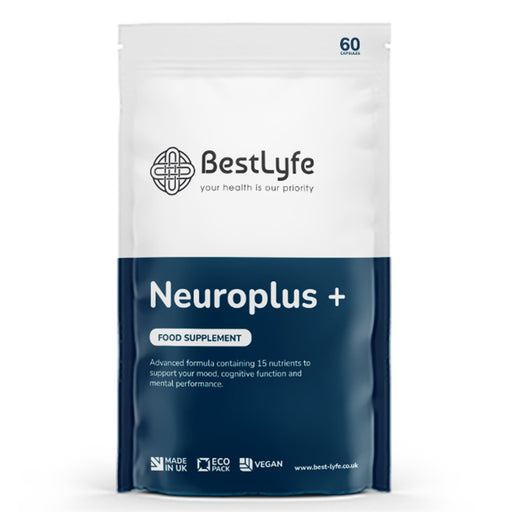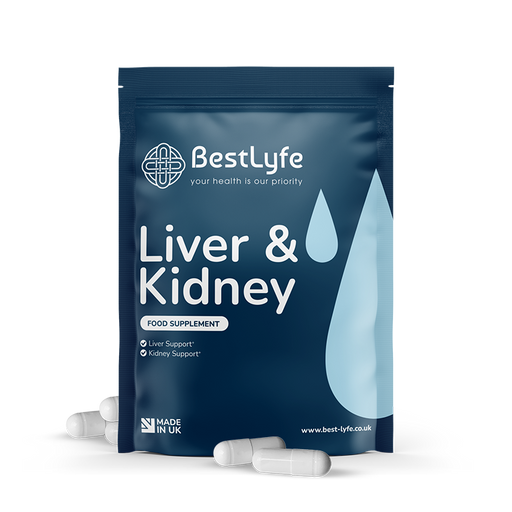
Aller-sneeze! What could be causing your allergies?
Understanding Allergies and Antihistamines
Allergies occur when our immune system becomes over-sensitive to environmental factors. These could be food, fur, pollen, grass, or something else entirely. However, the symptoms are fairly similar in most cases – runny noses, itchy eyes, sneezing, rashes.
The Role of Histamine
You’ll have heard of antihistamines before, but do you know what they really are? Before going further, we’ll make it clear for you. Histamine is a natural compound that your body produces to trigger a reaction to get rid of something. For example, if there’s something on your skin, it may become itchy. This causes us to scratch and alerts us to whatever has made contact with us that we need to treat or get rid of. This is really important when we come into contact with something dangerous like venom - it’s our body protecting itself. Although, sometimes our body overreacts to certain fairly harmless triggers – dust, fur, grass – and we end up with symptoms. We typically take antihistamine medication to reduce those symptoms and get rid of those unwanted runny noses and scratchy throats.
Nutritional Factors in Allergies
Whilst allergies could be the result of exposure to a particular thing, they could also be the result of nutritional deficiencies. For example, a diet low in vitamin D could inhibit the function of t-cells which, in turn, prevent the release of histamine. Another example is over-consumption of cow’s milk can stimulate excessive mucus production.
The Role of Diet in Managing Allergies
Ensuring that we have a well-balanced diet can really help with how our body reacts. In particular, healthy gut bacteria (probiotic sources – yoghurt, cheese, etc.) and antioxidants (vitamin A, C, and E) are really important when it comes to supporting your immune system against allergies. Other nutrients like vitamin B, D, magnesium, zinc, and omega 3 also play their part.
Specific Nutrients and Allergies
-
Vitamin B: Deficiency is typically found in bronchial allergy sufferers. Vitamin B, in particular B3, B6, and B12 can help to lower histamine levels which can help reduce symptoms such as wheezing.
-
Omega 3: Demonstrated to improve symptoms of bronchial allergy.
-
Vitamin A, C, and E: Powerful antioxidants and natural antihistamines. Studies show that vitamin C may help to reduce allergy symptoms.
-
Vitamin D: Directly impacts the function of our immunity. Research suggests that low levels of vitamin D are linked to more severe allergy symptoms and that the vitamin can help to moderate over-active responses of the immune system.
-
Magnesium: Important for the conversion of vitamin D to make it effective in regulating your immunity. The higher your intake of vitamin D, the more important it is to ensure that you also have enough intake of magnesium in order to avoid a deficiency.
-
Zinc: Used by our body to produce stomach acid. Low zinc intake is linked to improper digestion of food and, subsequently, when our body absorbs proteins from our food into the bloodstream they are too big. In response, and because our immune system cannot recognize the proteins (because they’re larger than expected!), we can stimulate an immune reaction.
The Power of Nutrition
The power of nutrition to improve health conditions always amazes us, but if you’re experiencing reactions, it’s always a good idea to consult your GP for an explanation – book in as early as possible for a quick check-up!
Best Selling Natural Health Products
-
Joint Plus - Glucosamine Joint Gel 200ml
Original price £17.95 - Original price £107.70Original price £53.85£17.95£17.95 - £86.16Current price £17.95in stockNourish and improve mobility with Joint Plus Glucosamine Gel Targeted anti-inflammatory action from natural ingredients that work in synergy to co...
View full detailsOriginal price £17.95 - Original price £107.70Original price £53.85£17.95£17.95 - £86.16Current price £17.95 -
Nutriplex: Collagen Rich Joint Health Supplement - Tower Health
Original price £29.95 - Original price £143.00Original price£29.95£29.95 - £143.00Current price £29.95In stockImprove Joint Health & Mobility with Nutriplex Reap the benefits of our collagen-rich joint health supplement, packed with essential nutri...
View full detailsOriginal price £29.95 - Original price £143.00Original price£29.95£29.95 - £143.00Current price £29.95 -
La Jeunesse Collagen Capsules 1200mg 60 Capsules - Tower Health
Original price £29.95 - Original price £134.11Original price£29.95£29.95 - £134.11Current price £29.95in stockIntroducing La Jeunesse Collagen: Your Comprehensive Skin and Joint Health Solution Discover La Jeunesse Collagen, a meticulously formulate...
View full detailsOriginal price £29.95 - Original price £134.11Original price£29.95£29.95 - £134.11Current price £29.95 -
Bestlyfe Kidney Support+
Original price £24.95 - Original price £149.70Original price £74.85£24.95£24.95 - £119.70Current price £24.95in stockCleanse, detox, repair and support your digestive system with Bestlyfe's Kidney Support+ Advanced formula containing 14 nutrients and vitamins to s...
View full detailsOriginal price £24.95 - Original price £149.70Original price £74.85£24.95£24.95 - £119.70Current price £24.95 -
Paingone Plus: The Automatic TENS Pen
Original price £59.94Original price £59.94 - Original price £59.94Original price £59.94Current price £51.54£51.54 - £51.54Current price £51.54in stockPortable, Automatic Tens pen AS SHOWN ON TV Introducing Paingone Plus – your go-to solution for rapid and efficient pain relief. This compact...
View full detailsOriginal price £59.94Original price £59.94 - Original price £59.94Original price £59.94Current price £51.54£51.54 - £51.54Current price £51.54Save 14% -
Jointplus Patches
Original price £29.95 - Original price £29.95Original price£29.95£29.95 - £29.95Current price £29.95in stockA natural upgrade on the glucosamine patches Natural ingredients - contains Glucosamine and Vitamin A,C & E 30x pack Discrete and convenient -...
View full detailsOriginal price £29.95 - Original price £29.95Original price£29.95£29.95 - £29.95Current price £29.95 -
Turmeric+ - 60 Tablets
Original price £12.95 - Original price £12.95Original price£12.95£12.95 - £12.95Current price £12.95in stockImprove Wellness With Turmeric Support your wellness routine with BestLyfe Turmeric+ tablets containing over 1,000 mg of Turmeric per recommended...
View full detailsOriginal price £12.95 - Original price £12.95Original price£12.95£12.95 - £12.95Current price £12.95 -
Paingone Aegis: Your Shield Against Back Pain
Original price £71.94 - Original price £71.94Original price£59.95£71.94 - £71.94Current price £59.95in stockWireless TENS machine for lower back pain. Adjustable intensity levels with remote control. Class IIa medical device. Can be worn under clothing....
View full detailsOriginal price £71.94 - Original price £71.94Original price£59.95£71.94 - £71.94Current price £59.95 -
Neuroplus+
Original price £24.95 - Original price £149.70Original price £74.85£24.95£24.95 - £119.76Current price £24.95in stockUnlock your cognitive performance and enhance your mood with Nauroplus+. Our carefully crafted blend of 15 nutrients aims to elevate your m...
View full detailsOriginal price £24.95 - Original price £149.70Original price £74.85£24.95£24.95 - £119.76Current price £24.95 -
Liver & Kidney - Cleanse & Detox
Original price £39.95Original price £39.95 - Original price £209.70Original price £39.95Current price £31.95£31.95 - £191.75Current price £31.95in stockBestLyfe's recommended supplements to support healthy digestive organs. Fight back against overindulgence with 26 nutrients that keep your liver an...
View full detailsOriginal price £39.95Original price £39.95 - Original price £209.70Original price £39.95Current price £31.95£31.95 - £191.75Current price £31.95Save 9%










